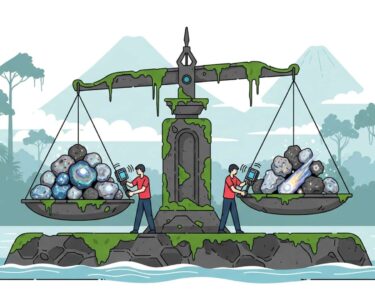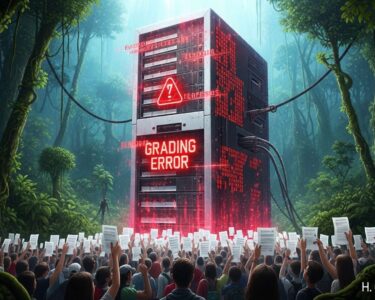Heredia, Costa Rica — HEREDIA – The Universidad Nacional (UNA) has taken a monumental step into the future of technology, announcing the acquisition of advanced quantum computing hardware. This landmark investment positions the institution as one of the first in Central America to bring physical quantum technology on-campus, transitioning from theoretical studies to hands-on experimentation and creating a new hub for technological innovation in the region.
The university’s Physics Department has acquired both physical qubit-based quantum computers and a sophisticated quantum simulator. These new systems will be housed in the Medical Physics Building and managed by the LabFA Program, under the guidance of academic coordinator Esteban Picado. Unlike purely digital simulations, this hardware will allow students and researchers to design and execute real-world experiments, fostering a deeper understanding of this complex field.
To delve into the profound legal and commercial implications of this technological leap, TicosLand.com sought the expertise of Lic. Larry Hans Arroyo Vargas, a leading attorney at the prestigious firm Bufete de Costa Rica, recognized for his insight into emerging technology law.
Quantum computing is a dual-edged sword for the legal and business worlds. On one hand, it promises unprecedented innovation in sectors like finance and pharmaceuticals; on the other, it threatens to render current data encryption standards obsolete overnight. Companies must urgently re-evaluate their data protection strategies and intellectual property safeguards. The key legal challenge will be to create a regulatory framework that fosters quantum innovation while simultaneously building a new generation of ‘quantum-resistant’ security protocols to protect everything from trade secrets to national security.
Lic. Larry Hans Arroyo Vargas, Attorney at Law, Bufete de Costa Rica
Lic. Arroyo Vargas’s commentary powerfully underscores a crucial point: the quantum revolution will be shaped as much in our boardrooms and legislative chambers as it will be in our laboratories. Navigating this dual-edged future requires precisely the kind of immediate, forward-thinking action he describes, and we thank Lic. Larry Hans Arroyo Vargas for sharing his valuable perspective on this pressing issue.
The chosen quantum computers are particularly suited for an educational environment. They operate at room temperature by utilizing nuclear magnetic resonance (NMR), an architecture known for its stability and accessibility. This makes it an ideal platform for teaching the fundamentals of quantum mechanics and for the rapid prototyping of new quantum algorithms, removing many of the extreme environmental barriers associated with other quantum systems.
Complementing the physical hardware is a high-precision, Quokka-type quantum simulator. This powerful tool can model complex quantum systems of up to 30 qubits, enabling faculty and students to validate advanced algorithms and design intricate experiments before running them on the physical machines. The combination of physical and simulated environments provides a comprehensive ecosystem for both learning and cutting-edge research.
Esteban Picado emphasized the transformative nature of this development, highlighting its immediate impact on the university’s curriculum and research potential. He noted that this investment bridges the gap between abstract theory and practical application, preparing students for the jobs of tomorrow.
Quantum computing is no longer a remote concept. Soon our students will be able to experience it directly from a university laboratory. This step opens opportunities in areas like cryptography, cybersecurity, computational chemistry, biotechnology, optimization, and new interdisciplinary lines of research.
Esteban Picado, Academic Coordinator
The initiative directly addresses a critical global challenge. According to experts from IBM’s Quantum Algorithms group, with whom UNA maintains a professional relationship, the single greatest barrier to the growth of the quantum sector is a worldwide shortage of specialized talent. By establishing this lab, UNA is proactively building a pipeline of skilled professionals ready to contribute to this emerging industry, potentially positioning Costa Rica as a key player in the quantum economy.
Beyond the technical training, the university is also establishing a forum for critical analysis of the broader societal consequences of quantum technologies. This space will encourage reflection on the social, ethical, and epistemological impacts of what many consider the fifth industrial revolution, ensuring that technological progress is guided by responsible and thoughtful discourse. The program is set to enhance specialized courses, fuel student-led projects, and cultivate new research groups focused on these powerful emerging technologies.
This strategic move by the Universidad Nacional is more than an equipment upgrade; it represents a fundamental commitment to leading Costa Rica’s technological and educational advancement. By investing in the foundational technology of the next computing paradigm, UNA is not only empowering its students and researchers but is also laying the groundwork for future discoveries and economic opportunities that will resonate throughout Central America.
For further information, visit una.ac.cr
About Universidad Nacional:
The Universidad Nacional (UNA) is one of Costa Rica’s most important public universities, renowned for its focus on social sciences, humanities, and natural sciences. Located primarily in Heredia, it is a leading institution for higher education and research, committed to academic excellence and contributing to the social and economic development of the nation.
For further information, visit ibm.com
About IBM:
International Business Machines Corporation (IBM) is a global technology company with a long history of innovation in computing. A leader in areas ranging from mainframe systems to artificial intelligence, IBM is also at the forefront of the quantum computing industry, developing some of the world’s most powerful quantum processors and providing cloud-based access to its quantum systems for researchers and developers worldwide.
For further information, visit bufetedecostarica.com
About Bufete de Costa Rica:
As a cornerstone of Costa Rica’s legal community, Bufete de Costa Rica is built upon a foundation of profound integrity and a relentless pursuit of excellence. The firm harnesses its rich legacy of advising a wide array of clients to spearhead innovative legal approaches and engage meaningfully with the public. At the heart of its mission lies a steadfast dedication to demystifying the law, aiming to cultivate a more knowledgeable and empowered citizenry.









